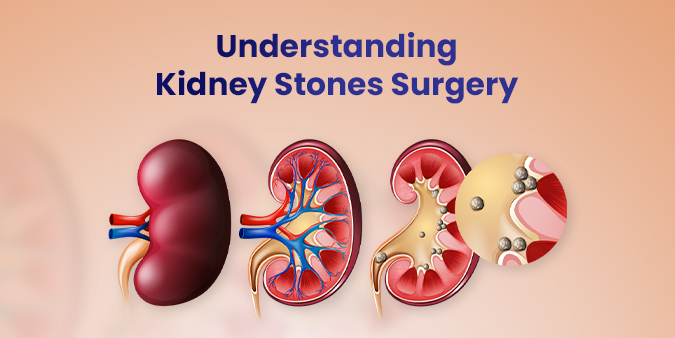
Understanding Kidney Stones Surgery: What You Need to Know Before Going Under the Knife
Wednesday, 22nd May 2024Kidney stones are a painful experience that many people face. When natural remedies and medications don’t work, surgery often becomes the best option. But what should you know before undergoing a kidney stone removal procedure? Let's dive into this topic to help you understand the essentials of surgical kidney stone removal.
Introduction to Kidney Stones
Kidney stones are hard mineral deposits that form in the kidneys. They can cause severe pain and discomfort, and sometimes require surgical intervention for removal. Understanding what to expect before going under the knife can ease your anxiety and prepare you for a smooth recovery.
What Are Kidney Stones?
Kidney stones are solid masses made up of tiny crystals. They can be composed of various substances, including calcium, oxalate, and uric acid. These stones form when your urine contains more crystal-forming substances than the fluid in your urine can dilute.
Symptoms of Kidney Stones
How do you know if you have kidney stones? The most common symptoms include:
- Severe pain in the back or side
- Pain during urination
- Pink, red, or brown urine
- Nausea and vomiting
Frequent urination
If you experience these symptoms, it’s crucial to seek medical advice.
When is Surgery Needed?
Not all kidney stones require surgery. However, surgical intervention becomes necessary when:
- The stone is too large to pass on its own.
- The stone causes persistent pain or urinary tract infections.
- The stone blocks the flow of urine.
Types of Kidney Stone Surgeries
There are several types of surgeries for kidney stone removal. Let's explore the main ones:
1. Ureteroscopy
This procedure involves inserting a thin scope into the urethra and bladder to locate and remove the stone.
2. Shock Wave Lithotripsy (SWL)
SWL uses sound waves to break the stone into smaller pieces that can pass through the urinary tract.
3. Percutaneous Nephrolithotomy (PCNL)
For larger stones, PCNL involves making a small incision in the back to remove the stone directly from the kidney.
4. Open Surgery
Though rare, open surgery may be required for extremely large or complicated stones.
Preparing for Kidney Stone Surgery
Preparation is key to a successful surgery. Your doctor will likely advise you to:
- Stop taking certain medications.
- Fast for a certain period before the surgery.
- Arrange for someone to drive you home post-surgery.
What Happens During the Surgery?
Understanding the surgical process can alleviate some of your fears. Generally, kidney stone surgery involves:
- Administering anesthesia to ensure you are pain-free.
- Using specialized instruments to locate and remove or break down the stone.
- Monitoring your vital signs throughout the procedure.
Recovery Process
Post-surgery, you can expect:
- A hospital stay ranging from a few hours to a few days, depending on the surgery type.
- Pain management with prescribed medications.
- Instructions on how to care for any incisions or surgical sites.
Potential Risks and Complications
As with any surgery, there are potential risks, including:
- Infection
- Bleeding
- Damage to surrounding organs
- Recurrence of kidney stones
Post-Surgery Care
Caring for yourself after surgery is crucial. Follow your doctor's instructions, which may include:
- Taking prescribed medications.
- Drinking plenty of fluids to flush out your system.
- Avoiding strenuous activities until you have fully recovered.
Diet and Lifestyle After Surgery
Adopting a healthier lifestyle can prevent future kidney stones. Recommendations include:
- Drinking ample water daily.
- Reducing salt and protein intake.
- Eating a balanced diet rich in fruits and vegetables.
Alternative Treatments
While surgery is sometimes necessary, alternative treatments for smaller stones include:
- Medications to dissolve the stones.
- Natural remedies, like drinking lemon water.
- Using a combination of dietary changes and hydration to pass the stones naturally.
Preventing Future Kidney Stones
Prevention is better than cure. Tips to avoid future stones include:
- Staying hydrated.
- Limiting foods high in oxalates, such as spinach and nuts.
- Monitoring your calcium intake under your doctor's guidance.
Cost and Insurance
Understanding the financial aspect is important. Kidney stone surgery costs vary depending on the procedure and your location. Check with your insurance provider to understand coverage and out-of-pocket expenses.
Conclusion
Kidney stone surgery can be daunting, but being well-informed helps you feel more prepared. Knowing what to expect before, during, and after surgery can make the process smoother and less stressful. Always consult with your healthcare provider to make the best decision for your health.


